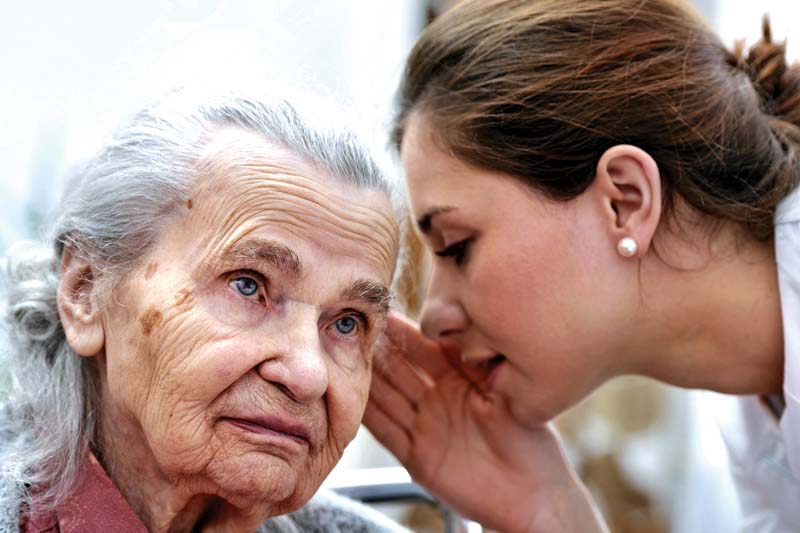Noise-induced hearing loss
We live with noise — vehicles honking, blaring of television and radio, flying jets and other various appliances. We even play loud music. But are we aware about the harmful effects of the sounds that surround us? Maybe not most of us.
“Sounds which are on the level of 70-80 decibels (dB) are quite safe. But sounds become harmful if they are over 85 dB. The sound is harmful if it is too loud even for a brief time. Whenever people are exposed to such sounds, there are chances of damage of sensitive structures in the inner ear causing noise-induced hearing loss,” informs Dr Sudeep Mishra, Assistant Professor, ENT, BP Koirala Institute of Health Sciences, Dharan.
According to him, the rate of damage increases with the increase of the unit of sound. The decibel of sound is zero in a very quiet environment, 30 dB in libraries, sound produced by typewriter and sewing machine is 60 dB and the sound of heavy traffic is 90 dB. The sound made by drills is 100 dB. Sand blasts and jets produce 115 dB and 140 dB of sound respectively. Heavy music in concerts and mp3 players produce sounds of 115 dB and 105 dB respectively.
Gradual and immediate damage
People can suffer from noise trauma or have permanent loss of hearing due to noise. Noise-induced hearing loss has effect in one or both ears. “Those who are working with machines that produce loud noises are prone to hearing loss. Multiple exposure to the sound leads to permanent hearing loss,” informs Dr Mishra adding, “The loss of hearing depends on how long one works, the sound level and the frequency.”
If one is working in areas with loud sounds, then the person is susceptible to slow and gradual hearing loss. The doctor explains, “If one works for more than two hours in loud noises, then be sure that the person will suffer a gradual loss of hearing. In addition, people working with sounds more than 85 dB are comparatively at a higher risk of hearing loss.”
People even suffer from immediate blast injuries, as per him, and gunshots, explosions are also some causes of immediate damage. “Such noise ruptures the eardrum or damages the bones in the middle ear. Such hearing loss is immediate and permanent,” Dr Mishra informs.
Symptoms
One of the symptoms of hearing loss is trouble in hearing. One will not be able to understand others when they talk while affecting one’s conversation skills.
“In the initial stage, there won’t be hearing loss. The patient slowly will not understand spoken words of others. S/he will have to increase the volume of television and radio. Slowly and gradually, there is deterioration in the hearing. Such people won’t understand others talking when there is a background noise,” informs Dr Mishra.
Other symptoms include dizziness, ringing in the ears, and headache in patients.
People of all ages and sex are prone to noise-induced hearing loss. However, “males are comparatively under more risk of hearing loss as they work in noisy environments than the females”.
“Patients with some forms of hearing loss, people suffering from cardiovascular diseases, hypertension and diabetes too are susceptible to hearing loss. In addition, smoking and intake of both recreational drugs and drugs used in the treatment of cancer too can lead to hearing loss in people,” the doctor adds.
Moreover, hearing loss is directly proportional to ageing to which Dr Mishra informs, “As age increases, the hearing starts deteriorating. When there is contact with such loud noises during ageing, then there are chances of one to suffer from complete hearing loss.”
People are unaware about the noise-induced hearing loss in the country. “People here have started spending more time talking on mobile phones. This in turn will have an effect on the ear and its mechanism,” reveals the doctor warning, “As noise-induced hearing loss is a permanent one, people need to be more aware so as to prevent further deterioration.”
Ways of prevention
The best ways to prevent noise-induced hearing loss is to:
- Be aware of noises
- Wear earplugs or other protective devices such as earplugs and earmuffs when you are in an environment with loud noises
- Don’t stay in areas of loud noises
- Get your ears tested






